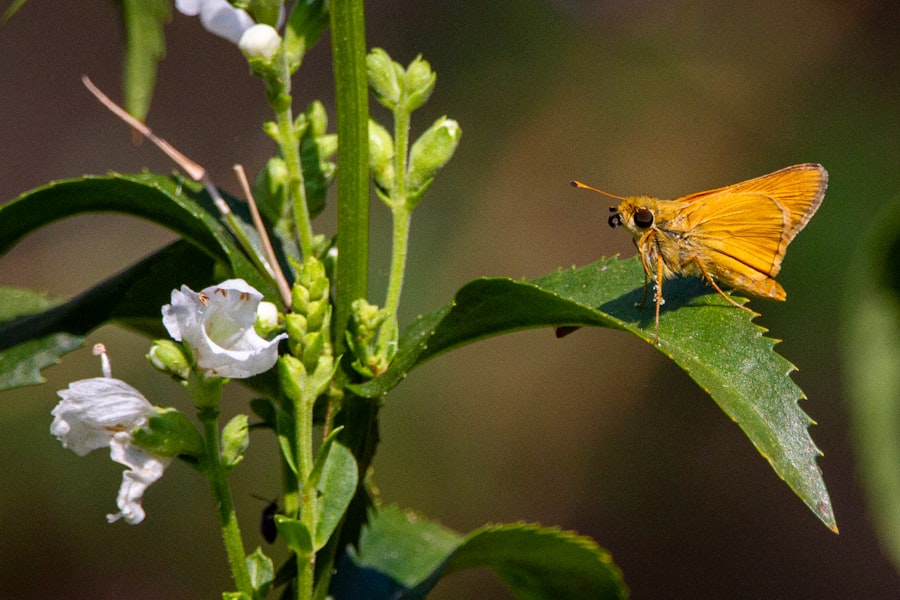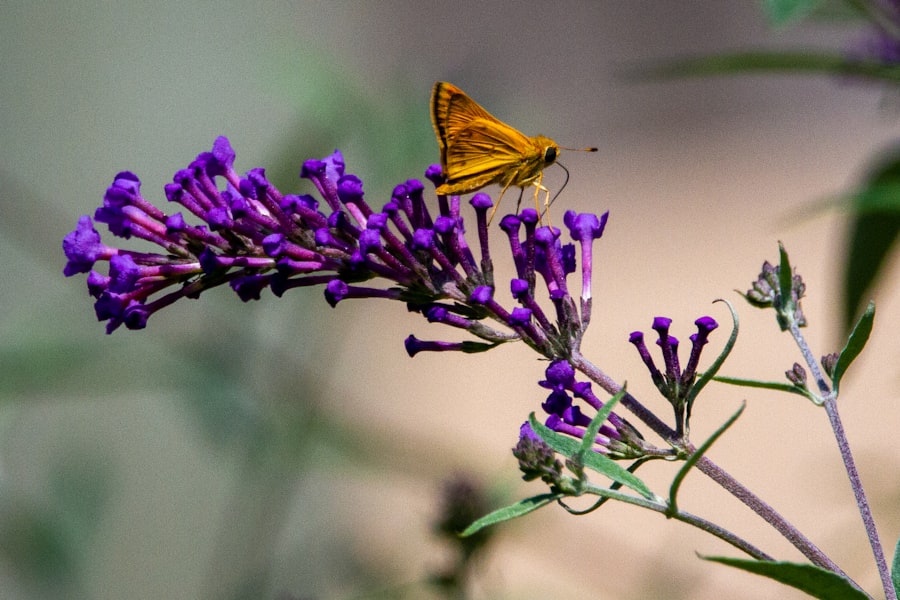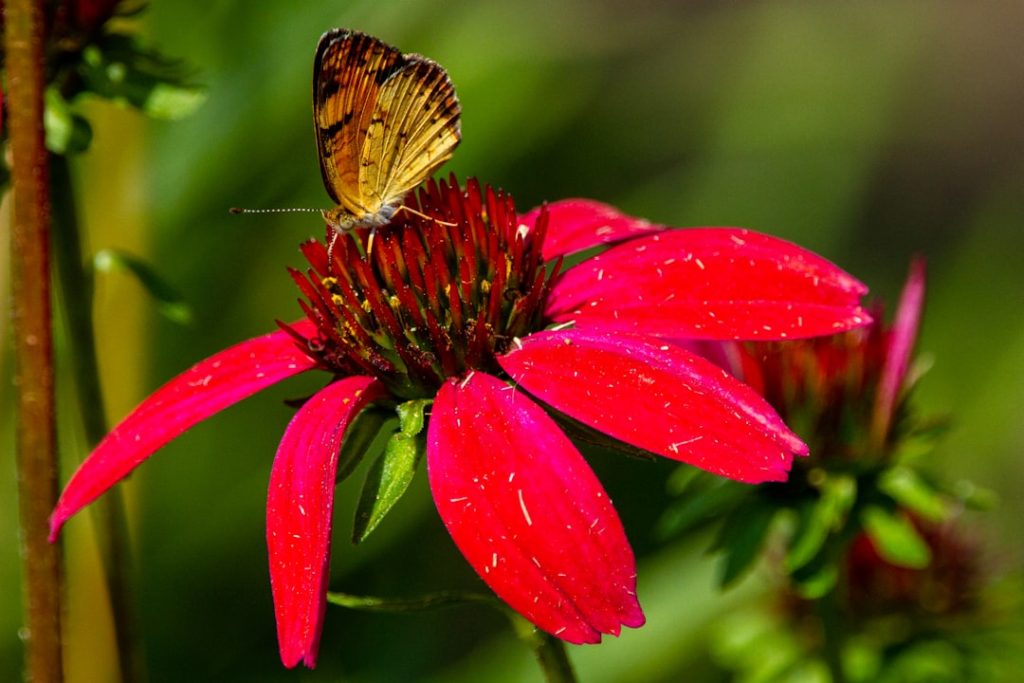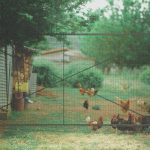Keeping chickens and growing vegetables in a home garden offers numerous advantages for households. Chickens provide a sustainable source of fresh eggs, which are rich in protein, vitamins, and minerals, contributing to a nutritious diet. These birds also serve as natural pest control in gardens, consuming insects and small creatures that may damage plants, thus reducing the need for chemical pesticides and promoting environmental sustainability.
Growing vegetables at home ensures access to fresh, flavorful, and nutritious produce. Homegrown vegetables are typically harvested at peak ripeness and consumed shortly after, maximizing their nutritional value. This practice can lead to cost savings on groceries and a reduced carbon footprint by eliminating transportation and packaging associated with store-bought produce.
Additionally, gardening offers physical activity and stress relief benefits, allowing individuals to engage with nature and spend time outdoors.
Table of Contents
- 1 Choosing the Right Breeds of Chickens for Your Garden
- 2 Creating a Chicken-Friendly Garden
- 3 Using Chicken Manure as Fertilizer for Your Vegetables
- 4 Companion Planting with Chickens in the Garden
- 5 Harvesting and Using Fresh Eggs and Vegetables
- 6 Tips for Maintaining a Healthy and Productive Garden and Chicken Coop
- 7 FAQs
- 7.1 What are the benefits of keeping chickens and growing vegetables together?
- 7.2 What are some important considerations when keeping chickens and growing vegetables together?
- 7.3 What vegetables are suitable for growing alongside chickens?
- 7.4 What are some benefits of free-ranging chickens in the garden?
- 7.5 What are some challenges of keeping chickens and growing vegetables together?
Key Takeaways
- Keeping chickens and growing vegetables together can provide a sustainable source of fresh eggs and produce, as well as natural pest control and fertilizer for your garden.
- When choosing chicken breeds for your garden, consider their temperament, foraging ability, and egg-laying capacity to ensure they are a good fit for your gardening needs.
- Creating a chicken-friendly garden involves providing adequate space, shelter, and protection for your chickens, as well as incorporating chicken-safe plants and structures into your garden design.
- Using chicken manure as fertilizer for your vegetables can help improve soil fertility and plant growth, but it’s important to compost the manure first to reduce the risk of pathogens and odors.
- Companion planting with chickens in the garden can help deter pests, improve soil health, and create a more diverse and productive garden ecosystem.
Choosing the Right Breeds of Chickens for Your Garden
Space Considerations
The size of your garden and the amount of space you have available for your chickens to roam is a crucial factor. If you have a small garden, you may want to consider smaller breeds such as bantams, which require less space and are less likely to damage your plants.
Temperament and Handling
The temperament of the chicken breeds is another important factor to consider. Some breeds are known for being more docile and friendly, making them easier to handle and less likely to cause damage to your garden. For example, Australorps and Silkies are known for their gentle nature and are often recommended for beginner chicken keepers.
Egg-Laying Capabilities
You may also want to consider the egg-laying capabilities of different breeds, as some are more prolific layers than others. For example, Leghorns are known for their high egg production, while heritage breeds such as Plymouth Rocks may lay fewer eggs but are valued for their hardiness and ability to forage for food.
Creating a Chicken-Friendly Garden

Creating a chicken-friendly garden involves designing your garden in a way that allows your chickens to coexist with your plants without causing damage. One important aspect of creating a chicken-friendly garden is providing adequate space for your chickens to roam and forage. Chickens are natural foragers and enjoy scratching and pecking at the ground in search of insects and plants to eat.
By providing them with ample space to do so, you can help prevent them from damaging your garden beds. Additionally, it’s important to protect your plants from being trampled or eaten by your chickens. You can do this by using fencing or barriers to keep your chickens out of certain areas of the garden.
Raised beds can also be a good option for protecting your plants from curious chickens. Furthermore, providing your chickens with alternative sources of food and entertainment, such as hanging treats or dust baths, can help keep them occupied and less likely to focus on your garden plants. By creating a chicken-friendly garden, you can enjoy the benefits of having chickens while still maintaining a beautiful and productive garden.
Using Chicken Manure as Fertilizer for Your Vegetables
Chicken manure is a valuable source of fertilizer for your vegetables, as it is rich in nitrogen, phosphorus, and potassium, which are essential nutrients for plant growth. However, it’s important to use chicken manure properly to avoid burning your plants or introducing harmful bacteria into your garden. One way to use chicken manure as fertilizer is to compost it before applying it to your garden.
Composting chicken manure helps break down the nutrients and reduce the risk of burning your plants with high levels of nitrogen. Another option is to use aged or well-rotted chicken manure, which has had time to decompose and mellow. This type of manure is less likely to burn your plants and is safer to use directly in the garden.
You can also mix chicken manure with other organic materials such as straw or leaves to create a balanced and nutrient-rich compost for your vegetables. By using chicken manure as fertilizer, you can improve the health and productivity of your garden while reducing the need for synthetic fertilizers.
Companion Planting with Chickens in the Garden
Companion planting with chickens in the garden involves strategically planting certain crops that can benefit from the presence of chickens. For example, planting cover crops such as clover or alfalfa can provide a natural source of food for your chickens while also improving soil fertility and preventing erosion. Additionally, allowing your chickens to forage in between rows of vegetables can help control pests and weeds, as they will eat insects and scratch at the soil.
Another way to companion plant with chickens is to grow certain herbs or flowers that can repel pests or attract beneficial insects. For example, planting marigolds or lavender near your vegetable garden can help deter pests such as aphids or mosquitoes while also providing a source of nectar for pollinators. By incorporating companion planting with chickens in your garden, you can create a more diverse and resilient ecosystem that benefits both your plants and your chickens.
Harvesting and Using Fresh Eggs and Vegetables

Collecting and Storing Fresh Eggs
When it comes to harvesting eggs, it’s important to collect them regularly to ensure they are fresh and clean. You can store eggs at room temperature for up to a week or in the refrigerator for several weeks.
Using Fresh Eggs in Recipes
Fresh eggs can be used in a wide range of recipes, from omelets and quiches to baked goods and custards.
Harvesting and Enjoying Fresh Vegetables
Similarly, harvesting vegetables from your garden at the peak of ripeness ensures that they are flavorful and nutritious. Different vegetables have different harvesting requirements, so it’s important to research the best practices for each crop. Once harvested, you can enjoy your homegrown vegetables in salads, stir-fries, soups, or simply steamed or roasted as a side dish. By harvesting and using fresh eggs and vegetables from your garden, you can enjoy delicious and healthy meals while reducing your reliance on store-bought produce.
Tips for Maintaining a Healthy and Productive Garden and Chicken Coop
Maintaining a healthy and productive garden and chicken coop involves regular care and maintenance to ensure that both your plants and animals thrive. One important aspect of maintaining a healthy garden is proper watering and soil management. Different plants have different water requirements, so it’s important to water them accordingly to prevent under or overwatering.
Additionally, adding organic matter such as compost or mulch to the soil can improve its structure and fertility, leading to healthier plants. In terms of maintaining a healthy chicken coop, cleanliness is key to preventing disease and promoting good health in your flock. Regularly cleaning out bedding material, removing droppings, and providing fresh water and feed can help keep your chickens healthy and happy.
Additionally, monitoring for signs of illness or parasites and providing appropriate veterinary care when needed is essential for maintaining a healthy flock. By following these tips for maintaining a healthy garden and chicken coop, you can enjoy the many benefits of keeping chickens and growing vegetables while creating a sustainable and thriving ecosystem in your backyard.
If you’re interested in keeping chickens and growing vegetables, you might also want to check out this article on building an A-frame chicken coop. This resource can help you create a comfortable and secure space for your chickens while also maximizing your garden space for growing vegetables.
FAQs
What are the benefits of keeping chickens and growing vegetables together?
Keeping chickens and growing vegetables together can create a sustainable and self-sufficient system. Chickens provide natural fertilizer for the vegetables, while the vegetables can provide food for the chickens. This can reduce the need for store-bought fertilizers and feed, and also promote a healthier environment.
What are some important considerations when keeping chickens and growing vegetables together?
It’s important to consider the space and layout of the garden and chicken coop. Chickens should have access to the garden for foraging, but measures should be taken to protect the vegetables from being damaged. Additionally, proper waste management and hygiene practices are crucial to prevent contamination of the vegetables by chicken droppings.
What vegetables are suitable for growing alongside chickens?
Leafy greens, root vegetables, and herbs are generally suitable for growing alongside chickens. These include lettuce, kale, spinach, carrots, beets, and parsley. It’s important to avoid planting vegetables that are toxic to chickens, such as tomatoes and potatoes.
What are some benefits of free-ranging chickens in the garden?
Free-ranging chickens can help control pests in the garden by eating insects and other small pests. Their scratching and pecking behavior can also help aerate the soil and reduce weed growth. Additionally, their droppings can provide natural fertilizer for the plants.
What are some challenges of keeping chickens and growing vegetables together?
One challenge is managing the potential for chickens to damage the garden by scratching and pecking at plants. Another challenge is preventing the spread of diseases from chickens to the vegetables. Proper planning and management practices can help mitigate these challenges.
Meet Walter, the feathered-friend fanatic of Florida! Nestled in the sunshine state, Walter struts through life with his feathered companions, clucking his way to happiness. With a coop that’s fancier than a five-star hotel, he’s the Don Juan of the chicken world. When he’s not teaching his hens to do the cha-cha, you’ll find him in a heated debate with his prized rooster, Sir Clucks-a-Lot. Walter’s poultry passion is no yolk; he’s the sunny-side-up guy you never knew you needed in your flock of friends!







